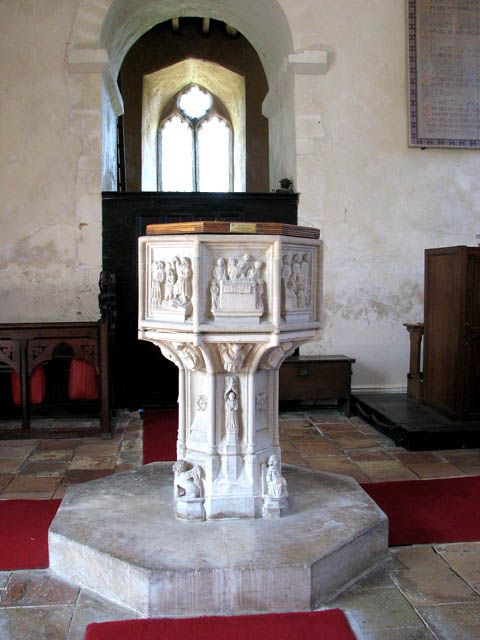
[see the Master List of all twelve installments]
Paolo Pasqualucci (signer of three of the endless reactionary-dominated “corrections” of Pope Francis), a Catholic and retired professor of philosophy of the law at the University of Perugia, Italy, wrote “‘Points of Rupture’ of the Second Vatican Council with the Tradition of the Church – A Synopsis” (4-13-18), hosted by the infamous reactionary site, One Peter Five. It’s an adaptation of the introduction to his book Unam Sanctam – A Study on Doctrinal Deviations in the Catholic Church of the 21st Century.
Pope Benedict XVI, writing as Cardinal Ratzinger, stated that the authority of Vatican II was identical to that of the Council of Trent:
It must be stated that Vatican II is upheld by the same authority as Vatican I and the Council of Trent, namely, the Pope and the College of Bishops in communion with him, and that also with regard to its contents, Vatican II is in the strictest continuity with both previous councils and incorporates their texts word for word in decisive points . . .
Whoever accepts Vatican II, as it has clearly expressed and understood itself, at the same time accepts the whole binding tradition of the Catholic Church, particularly also the two previous councils . . . It is likewise impossible to decide in favor of Trent and Vatican I but against Vatican II. Whoever denies Vatican II denies the authority that upholds the other two councils and thereby detaches them from their foundation. And this applies to the so-called ‘traditionalism,’ also in its extreme forms. Every partisan choice destroys the whole (the very history of the Church) which can exist only as an indivisible unity.
To defend the true tradition of the Church today means to defend the Council. It is our fault if we have at times provided a pretext (to the ‘right’ and ‘left’ alike) to view Vatican II as a ‘break’ and an abandonment of the tradition. There is, instead, a continuity that allows neither a return to the past nor a flight forward, neither anachronistic longings nor unjustified impatience. We must remain faithful to the today of the Church, not the yesterday or tomorrow. And this today of the Church is the documents of Vatican II, without reservations that amputate them and without arbitrariness that distorts them . . .
I see no future for a position that, out of principle, stubbornly renounces Vatican II. In fact in itself it is an illogical position. The point of departure for this tendency is, in fact, the strictest fidelity to the teaching particularly of Pius IX and Pius X and, still more fundamentally, of Vatican I and its definition of papal primacy. But why only popes up to Pius XII and not beyond? Is perhaps obedience to the Holy See divisible according to years or according to the nearness of a teaching to one’s own already-established convictions? (The Ratzinger Report, San Francisco: Ignatius, 1985, 28-29, 31)
For further basic information about the sublime authority of ecumenical councils and Vatican II in particular, see:
Conciliar Infallibility: Summary from Church Documents [6-5-98]
The Bible on Papal & Church Infallibility [5-16-06]
Authority and Infallibility of Councils (vs. Calvin #26) [8-25-09]
The Analogy of an Infallible Bible to an Infallible Church [11-6-05; rev. 7-25-15; published at National Catholic Register: 6-16-17]
“Reply to Calvin” #2: Infallible Church Authority [3-3-17]
“On Adhesion to the Second Vatican Council” (Msgr. Fernando Ocariz Braña, the current Prelate of Opus Dei, L’Osservatore Romano, 12-2-11; reprinted at Catholic Culture) [includes discussion of VCII supposedly being “only” a “pastoral council”]
Pope Benedict on “the hermeneutic of reform, of renewal within continuity” (12-22-05)
The words of Paolo Pasqualucci, from his article, noted above, will be in blue:
*****
3. The attribution of the same faith in Christ to all Christians, including those “separated” from the Catholic Church, improperly equates the Catholic faith with the faith of schismatics and heretics. One notes, in particular, that the Decree Unitatis Redintegratio On Ecumenism even considers “separated Churches and Communities,” notwithstanding their “deficiencies,” to be true and proper “means of salvation which derive their efficacy from the very fullness of grace and truth entrusted to the Church” (UR 3.4).
Unitatis Redintegratio (Decree on Ecumenism: 11-21-64) stated:
[T]he separated Churches and Communities as such, though we believe them to be deficient in some respects, have been by no means deprived of significance and importance in the mystery of salvation. For the Spirit of Christ has not refrained from using them as means of salvation which derive their efficacy from the very fullness of grace and truth entrusted to the Church.
Nevertheless, our separated brethren, whether considered as individuals or as Communities and Churches, are not blessed with that unity which Jesus Christ wished to bestow on all those who through Him were born again into one body, and with Him quickened to newness of life – that unity which the Holy Scriptures and the ancient Tradition of the Church proclaim. For it is only through Christ’s Catholic Church, which is “the all-embracing means of salvation,” that they can benefit fully from the means of salvation. (3; my italics and bolding)
Note how this inclusion in the “means of salvation” is firmly rooted in the fullness of the Catholic Church and the doctrine of “no salvation outside the Church”: which was reaffirmed by Vatican II. This is an old question: dealt with by Augustine over 1500 years ago, in his writings about the schismatic Donatists. The debate was whether their baptism was a valid sacrament or not. St. Augustine and the Church held that they were valid. He dealt with this issue in great detail in his book On Baptism, Against the Donatists (Book VI):
1. It might perhaps have been sufficient, that after the reasons have been so often repeated, and considered, and discussed with such variety of treatment, supplemented too, with the addition of proofs from holy Scripture, and the concurrent testimony of so many passages from Cyprian himself, even those who are slow of heart should thus understand, as I believe they do, that the baptism of Christ cannot be rendered void by any perversity on the part of man, whether in administering or receiving it. And when we find that in those times, when the point in question was decided in a manner contrary to ancient custom, after discussions carried on without violation of saving charity and unity, it appeared to some even eminent men who were bishops of Christ, among whom the blessed Cyprian was specially conspicuous, that the baptism of Christ could not exist among heretics or schismatics, this simply arose from their not distinguishing the sacrament from the effect or use of the sacrament; and because its effect and use were not found among heretics in freeing them from their sins and setting their hearts right, the sacrament itself was also thought to be wanting among them. But if we turn our eyes to the multitude of chaff within the Church, since these also who are perverse and lead an abandoned life in unity itself appear to have no power either of giving or retaining remission of sins, seeing that it is not to the wicked but the good sons that it was said, “Whosesoever sins ye remit, they are remitted unto them; and whosesoever sins ye retain, they are retained,” John 20:23 yet that such persons both have, and give, and receive the sacrament of baptism, was sufficiently manifest to the pastors of the Catholic Church dispersed over the whole world, through whom the original custom was afterwards confirmed by the authority of a plenary Council; so that even the sheep which was straying outside, and had received the mark of the Lord from false plunderers outside, if it seek the salvation of Christian unity, is purified from error, is freed from captivity, is healed of its wound, and yet the mark of the Lord is recognized rather than rejected in it; since the mark itself is often impressed both by wolves and on wolves, who seem indeed to be within the fold, but yet are proved by the fruits of their conduct, in which they persevere even to the end, not to belong to that sheep which is one in many; because, according to the foreknowledge of God, as many sheep wander outside, so many wolves lurk treacherously within, among whom the Lord yet knows them that are His, which hear only the voice of the Shepherd, even when He calls by the voice of men like the Pharisees, of whom it was said, “Whatsoever they bid you observe that observe and do.” Matthew 23:3 (ch. 1, sec. )
But I think that we have sufficiently shown, both from the canon of Scripture, and from the letters of Cyprian himself, that bad men, while by no means converted to a better mind, can have, and confer, and receive baptism, of whom it is most clear that they do not belong to the holy Church of God, though they seem to be within it, . . . (ch. 3, sec. 5)
To the declaration of Polycarp of Adrumetum, that “those who declare the baptism of heretics to be valid, make ours of none effect,” we answer, if that is the baptism of heretics which is given by heretics, then that is the baptism of the covetous and murderers which is given by them within the Church. But if this be not their baptism, neither is the other the baptism of heretics; and so it is Christ’s, by whomsoever it be given. (ch. 10, sec. 15)
The Council of Trent taught the same after the Protestant Revolution:
If anyone says that the baptism which is given by heretics in the name of the Father, and of the Son, and of the Holy Ghost, with the intention of doing what the Church does, is not true baptism, let him be anathema. (Decree on the Sacraments / On Baptism / Canon IV)
This baptism (which is Catholic, regardless of who administers it) regenerates and saves, according to Holy Scripture:
Acts 2:38 (RSV) And Peter said to them, “Repent, and be baptized every one of you in the name of Jesus Christ for the forgiveness of your sins;
1 Peter 3:18-21 For Christ also died for sins once for all, the righteous for the unrighteous, that he might bring us to God, being put to death in the flesh but made alive in the spirit; in which he went and preached to the spirits in prison, who formerly did not obey, when God’s patience waited in the days of Noah, during the building of the ark, in which a few, that is, eight persons, were saved through water. Baptism, which corresponds to this, now saves you, not as a removal of dirt from the body but as an appeal to God for a clear conscience, through the resurrection of Jesus Christ,
Acts 22:16 And now why do you wait? Rise and be baptized, and wash away your sins, calling on his name.’
Romans 6:3-4 Or don’t you know that all of us who were baptized into Christ Jesus were baptized into his death? We were therefore buried with him through baptism into death in order that, just as Christ was raised from the dead through the glory of the Father, we too may live a new life. (cf. Romans 8:11, 1 Cor 15:20-23, Col 2:11-13)
1 Corinthians 6:11 And such were some of you. But you were washed, you were sanctified, you were justified in the name of the Lord Jesus Christ and in the Spirit of our God.
Mark 16:16 He who believes and is baptized will be saved; but he who does not believe will be condemned.
Titus 3:5 he saved us, not because of deeds done by us in righteousness, but in virtue of his own mercy, by the washing of regeneration and renewal in the Holy Spirit,
The Catholic Church agrees! Thus Servant of God Fr. John A. Hardon, SJ (my mentor), in his wonderful Modern Catholic Dictionary, stated that “Baptismal Graces” include all of the following things:
The supernatural effects of the sacrament of baptism. They are: 1. removal of all guilt of sin, original and personal; 2. removal of all punishment due to sin, temporal and eternal; 3. infusion of sanctifying grace along with the theological virtues of faith, hope, and charity, and the gifts of the Holy Spirit; 4. incorporation into Christ; and 5, entrance into the Mystical Body, which is the Catholic Church; 6. imprinting of the baptismal character, which enables a person to receive the other sacraments, to participate in the priesthood of Christ through the sacred liturgy, and to grow in the likeness of Christ through personal sanctification. Baptism does not remove two effects of original sin, namely concupiscence and bodily mortality. However, it does enable a Christian to be sanctified by his struggle with concupiscence and gives him the title to rising in a glorified body on the last day.
All of this occurs in Protestant trinitarian baptism, because it is a true and valid baptism. Therefore, Protestants do indeed participate in the “means of salvation” (“through Christ’s Catholic Church”): not just through baptism, but in other ways as well. A (first) marriage between two baptized Protestants is also considered to be a sacrament by the Catholic Church, and it, too, contributes to and makes possible, salvation (as all sacraments do).
See also:
“Separated Brethren” Term Before Vatican II (1962-1965)
***
Photo credit: Evelyn Simak (8-23-09). Church of SS Margaret and Remigius, Seething, England (Church of England): baptismal font (1480) [Geograph.Org.UK / CC BY-SA 2.0 license]
***













